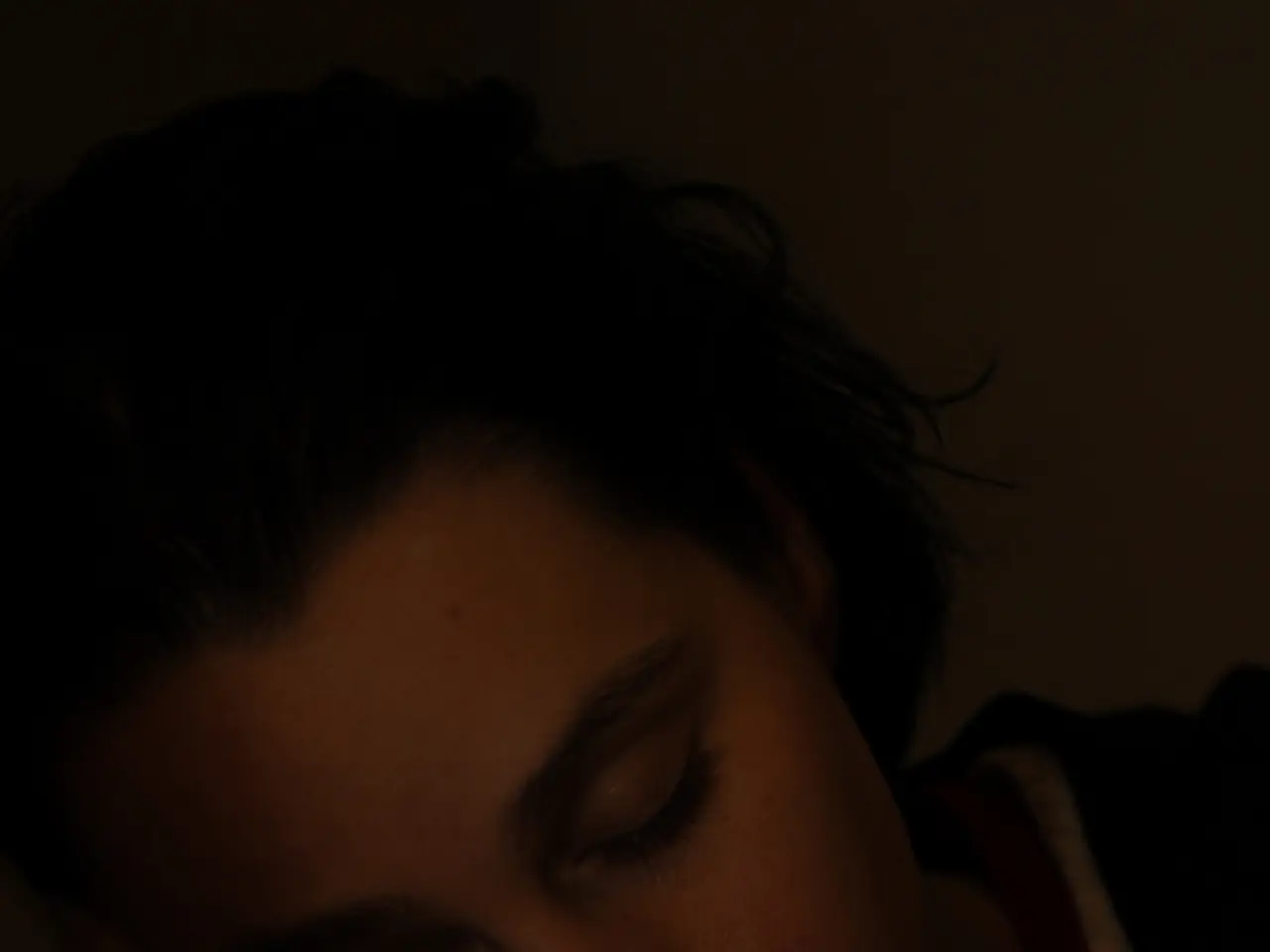Midlife Slumber Analysis Potentially Saved Life
In a remarkable turn of events, an individual in Germany has found significant relief from the debilitating effects of severe sleep apnea, thanks to the use of a Continuous Positive Airway Pressure (CPAP) machine.
For years, the individual experienced vivid hallucinations during sleep, which included encounters with construction workers and a close combat with an elk. These unusual occurrences were likely a result of the sleep apnea, a disorder characterised by nocturnal breathing pauses due to narrowed airways or faulty signals between the brain and respiratory muscles.
Sleep apnea is a common issue, particularly in Germany, where about 30% of men and 13% of women, across all age groups, suffer from it. This condition can cause severe sleep deprivation, leading to symptoms such as lethargy, irritability, unmotivation, and short-term memory loss.
In a sleep study, the individual was found to have 199 episodes of apnea, a number far above the highest threshold for sleep apnea. Each time their breathing stopped, their blood oxygen level dropped dangerously low, from 94% to 87%. This is a serious concern, as prolonged periods of low oxygen levels can lead to a range of health problems.
The CPAP machine, a standard treatment for sleep apnea, has proven to be effective in improving symptoms. The machine delivers a constant air pressure through a hose and face mask to the nose and throat, helping to keep the airways open and preventing apnea episodes.
After using the CPAP machine, the individual was able to work a whole shift without needing a nap or a liter of coffee, a stark contrast to their previous struggles. Moreover, the machine has been reported to improve erectile dysfunction, according to studies, and has been found to enhance mood and restore short-term memory.
Despite its importance, sleep apnea is often overlooked in medical practice. Health authorities have emphasised the need for enhanced screening and greater awareness of sleep apnea. In 2021, the American Heart Association issued an urgent statement calling for the same.
Sleep apnea is linked to various health issues, including heart diseases, high blood pressure, stroke, type 2 diabetes, and Alzheimer's. If left untreated, the risk of death is effectively tripled for individuals with sleep apnea.
In Germany, diagnosis of sleep apnea would follow a referral from a primary care physician to a specialist, and would be covered by health insurance upon medical confirmation of sleep apnea. The CPAP machine, while affordable and widely available, can help prevent early death in individuals with sleep apnea.
It's worth noting that the individual's sleep apnea was not diagnosed until their mid-thirties, highlighting the need for increased awareness and early detection. However, no specific person is identified in the search results as having been diagnosed with severe sleep apnea at age 30 and subsequently symptom-free through CPAP treatment over the following years.
Dr. David Kuhlmann, director of sleep medicine at Bothwell Regional Health Center in Missouri, stated that sleep apnea is not yet a significant part of medical education. This underscores the importance of continued efforts to raise awareness about this condition and its potential impacts on public health.
Read also:
- Peptide YY (PYY): Exploring its Role in Appetite Suppression, Intestinal Health, and Cognitive Links
- Toddler Health: Rotavirus Signs, Origins, and Potential Complications
- Digestive issues and heart discomfort: Root causes and associated health conditions
- House Infernos: Deadly Hazards Surpassing the Flames








